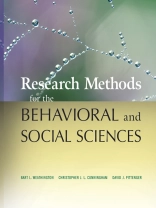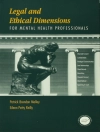A comprehensive introduction to research methods and best
practices for designing, conducting, interpreting, and reporting
findings
This text is designed to develop in students a passion for
conducting research and an understanding of the practical value of
systematic information- gathering and decision-making. It features
step-by-step coverage of the research process including research
design, statistical considerations, and guidance on writing up and
presenting results.
Recognized leaders in the field–authors Bart Weathington,
Christopher Cunningham, and David Pittenger–present:
* Introductions to multiple research designs–including
single-participant, multi-group, longitudinal, correlational, and
experimental designs–accompanied by examples
* Bibliographic research and methods for appropriate sampling
* Identifying, developing, and evaluating reliable and valid
approaches to measurement
* The issues and steps common to all single-factor and multifactor
studies, as well as single-subject and nonexperimental methods
* How to summarize research in writing that conforms to the
editorial guidelines of the American Psychological Association
A comprehensive review of research methods and the statistical
concepts that support them, Research Methods for the Behavioral
and Social Sciences offers the best techniques for studying
behavior and social phenomena.
Tentang Penulis
Bart L. Weathington, Ph D, is a UC Foundation Associate
Professor of Psychology at The University of Tennessee at
Chattanooga. He is an industrial-organizational and sport
psychology researcher, teacher, and consultant on applied
psychological issues.
Christopher J. L. Cunningham, Ph D, is a UC Foundation
Assistant Professor of Psychology at The University of Tennessee at
Chattanooga. He is actively engaged in industrial-organizational
and occupational health psychology research, teaching, and
consulting.
David J. Pittenger, Ph D, is Dean of the¿College
of¿Liberal Arts¿at Marshall University. His primary
research interests and publications focus on the partial
reinforcement extinction effect, psychometric properties of
personality inventories, the coping strategies of caregivers, and
ethical issues related to the behavioral sciences.












